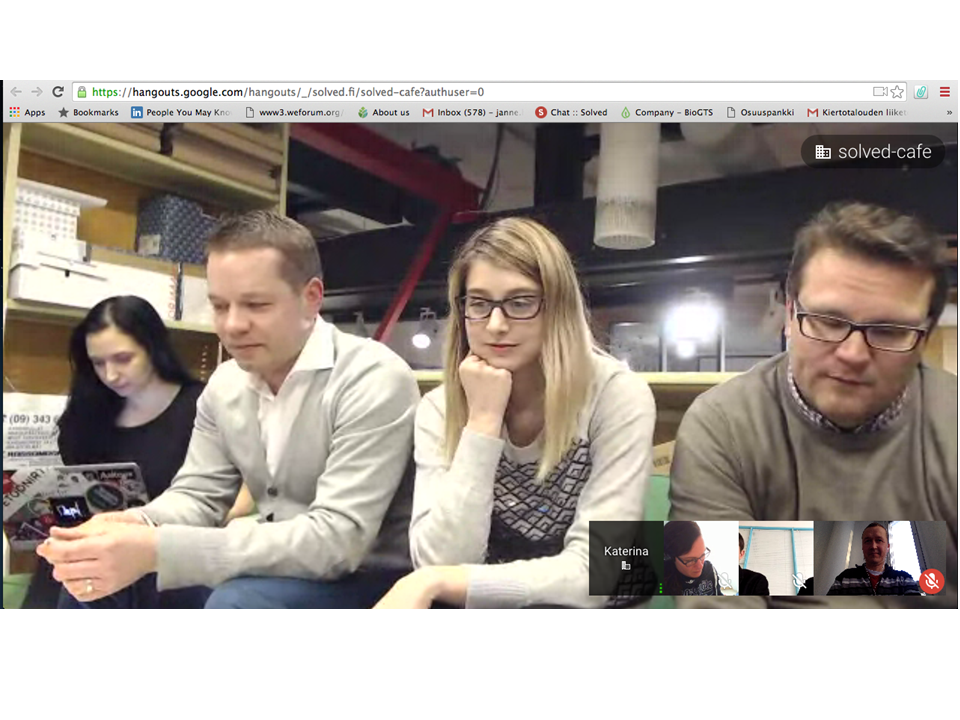Virtual collaboration – What? Why? How?
by Katja Monikainen, Jun 28th 2019

Word from an expert: New communities are forming around cleantech, wellbeing, cooking, sports, game industry and in research, in variety of different platforms. Professionally collaboration in virtual platforms is a way to make it in global markets. It offers great opportunities for experts, researchers, cities and for businesses.
Virtual collaboration can build your professional brand, expand your networks and start new business relationships. In online worlds it is possible to share, to grow, to learn, to collaborate and to build new relationships across the globe – professionally and privately. This is how many new products, services and business concept are born nowadays.
Organizations have transformed to suit the global market place at different levels, and virtual collaboration is now increasingly utilized in global businesses. Virtual collaboration offers more possibilities to benefit from experts working across the globe, increasing adaptability, flexibility, agility and speed. It basically enables people to make a difference.
How to measure success in virtual collaboration?
There are at least three ways to measure success. In successful virtual collaboration:
- Original business targets and goals are achieved. Exceeding the clients and colleague’s expectations is all the better.
- The way of work, should be organized in such way that individuals are able to use their knowledge to their full potential or even better – exceeding their limits and growing professionally as well is preferred. In virtual platform this means that achievements should become visible and experts perspectives should be asked at the beginning of the project and at the end – and the results should be evaluated.
- The overall experience of the collaboration should satisfy people’s professional interests and needs. Personal feelings of trust are definitely a plus. In order to enable affective trust, also informal communication without agendas is needed. This is often lacking in virtual collaboration and it directly reduces trust and willingness to share knowledge.
Personal touch and feelings in communication count; Trust enables collaboration and it is a very personal and also affective based feeling. It is typical for trust, that it is either increasing or decreasing. Therefore regular updates, personal touch and consistency in communication counts.
“You do need to deliver what you promised.”
Connection to others is a basic human need. Fundamental motivation for all is basically to be liked and to be approved by others. For the experts, virtual collaboration is often about promoting your competence and growing professionally. If you want to be trusted as professional, and seen as competent and reliable colleague or boss, you need to make your experience and achievements visible. After that, peoples’ expectations need to be fulfilled.

Listening counts
Finding a shared understanding or getting your message through is not that simple, if you don’t know the context or the colleague well enough. Therefore listening is the fundamental skill, which need to be trained in many cases. Different platforms and communities have different ways to interact and different fields have different languages and professional terminology. You do need to understand those, before you can truly listen and understand and contribute to the discussions.
People build their personal brand in social media through liking, not liking, through joining groups and statements they are making and content they are sharing. Virtual platforms are a place to connect, to do business, to build relationships and to find common ground between people across the globe.
Solved offers ways to change the world. Through developing a global community of experts, who solve sustainability challenges, you can impact positively to the environment. Why not join Solved as well or do you have an idea for a project? Let me know, if you are interested.
References:
Lohikoski, P. Kujala, J., Haapasalo, H., Harkonen J., Ala-Mursula Leena. (2015) Managing communication barriers in virtual global teams. IJNVO. Vol.15 No.4 pp. 277-298.
Päivi Lohikoski